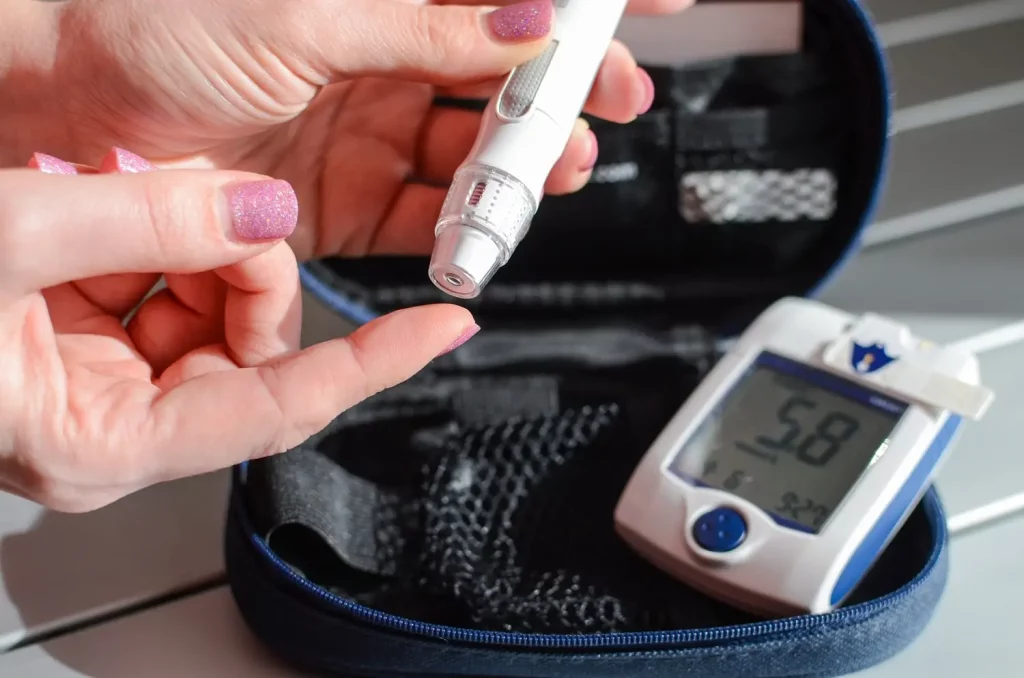Last Updated on: 5th December 2024, 10:21 am
Diabetes is a disease in which the levels of glucose (sugar) in the blood are very high. Glucose comes from the foods you eat. Insulin is a hormone that helps glucose enter cells to supply them with energy. In type 1 diabetes, the body does not make insulin. In type 2 diabetes, the most common, the body does not make or use insulin properly. Without enough insulin, glucose stays in the blood. Diabetes and metformin in oral health are something you should be wary of as they have a direct correlation and connection.
Diabetes has different pharmacological and non-pharmacological treatments and when blood glucose is not controlled, a series of problems can appear at the systemic level due to the impact that high sugar levels generate in different tissues and, additionally, it has been established that It has an immunosuppressive effect on the body, which causes a higher prevalence of skin, digestive and urinary tract infections, among others.
What is the connection of Diabetes and Metformin in Oral Health?
Studies indicate that people with diabetes are at increased risk for problems such oral health as gingivitis (early-stage gum disease) and periodontitis (advanced gum disease) and over time this can turn into a given vicious cycle that these dental diseases can alter blood glucose levels. People with diabetes are at higher risk for periodontitis because they are generally more susceptible to bacterial infections and are less able to fight bacteria that invade the gums.

Patients with diabetes may develop a dry mouth and a fungal infection called thrush or yeast infection oral, which presents as painful, whitish plaques in the mouth. Dry mouth occurs when there is not enough saliva, the fluid that keeps the mouth moist. Dry mouth can cause pain, ulcers, infections, and cavities. Smoking makes these problems worse. Additionally, diabetes can also cause the level of sugar (glucose) in saliva to rise. The combination of these problems could lead to thrush. (3)
The most severe disease gum is called periodontitis. In this stage, the gums begin to separate from the teeth. Pockets form between the teeth and gums. These fill with germs and pus and get deeper. When this happens, you may need gum surgery to save your teeth, and if this doesn’t happen promptly, the infection destroys the bone around your teeth. It is possible that the teeth begin to move or loosen, causing them to fall or extraction. (2) (3)
What is metformin for?
Metformin is an oral drug indicated in the treatment of type 2 diabetes, being one of the drugs of choice at the beginning of treatment. It is part of the group called biguanides and is characterized by a metallic taste. Among its most common adverse reactions are nausea, vomiting, diarrhea, gas and stomach upset, which usually disappear within weeks of starting treatment (if it does not improve after 2 or 3 weeks, you should notify your closest health professional); these symptoms may improve when consumed with lunch 20 min before eating. (4) (5)
Studies have not shown that metformin has a real impact on oral health; however, it is possible that due to its adverse effects and its taste it generates a little dry mouth or reflux of stomach acid. Therefore, it is important to consume it with a glass of water and keep the oral cavity very well hydrated. (5)

Metformin helps lower blood glucose (sugar). It does: (4)
- Reduce the amount of glucose released by your liver. Less glucose enters the bloodstream.
- Increase the ability of your muscles to use glucose for energy. As more glucose is used, more glucose leaves the bloodstream.
Metformin does not cause hypoglycemia. But combined with other medications, vigorous exercise, or too little food, it can cause your blood glucose to drop too low. When consumed with corticosteroids, it could inhibit their effect, which would generate an increase in blood glucose.
Some studies have identified that metformin could improve or minimize periodontitis, however, these are not conclusive and human studies have not yielded significant results against this effect.
Conclusion
We always recommend notifying your dentist if you are diagnosed with diabetes and if you are taking metformin since blood glucose control is important for oral health and this medication contributes greatly to this control.

People who do not have good blood glucose control have gum disease more often and more seriously than people who have well-controlled diabetes. With diabetes and metformin in oral health on the line, be sure to do the following:
- Check your blood glucose level.
- Brush your teeth twice a day and floss regularly.
- Go to the dentist for routine checkups and be sure to tell him you have diabetes.
- Let the dentist know if your dentures don’t fit or if your gums are sore.
- Stop smoking. Smoking makes gum disease worse. Your doctor or dentist can help you quit smoking.
Contact us
If you have any questions about this or other topics, you can contact us at Channel Islands Family Dental as well as our page on Facebook. We look forward to your visit and we will make a timely diagnosis. Our dentists in Oxnard, Santa Paula, Ventura, Newbury Park, and Port Hueneme will be able to guide you toward the best treatment to take care of your health and give you back your best smile.
Bibliography
- MedlinePlus NIH (National Institutes of Health), US National Library of Medicine, National Institute of Diabetes and Digestive and Kidney Diseases: Diabetes. Updated: 13 Oct 2020 (internet, consulted 16 May 2021) Available at medilineplus.gov
- American Diabetes Association, Oral Health, and Hygiene: Diabetes and Oral Health Problems. June 2014. (internet, consulted 16 May 2021) Available at diabetes.org
- NIH, National Institute for Dental and Craniofacial Research: Diabetes and Oral Health. March 2019 (internet, consulted 16 May 2021) Available at nidcr.nih.gov
- Intermountain Healthcare, Diabetes Drug: Metformin. 2020 (internet, consulted 16 May 2021) Available at intermountainhealthcare.org
- González Montero C, Manso Platero FJ, López Alba AJ. Oral antidiabetics and dentistry. Av. Odontoestomatol 2014; 30 (5): 271-281. (internet, consulted 16 May 2021) Available at scielo.org/es/
- Frykenberg, Matthew & Schneider, Abraham & Bashirelahi, Nasir. What every dentist should know about metformin, diabetes, and cancer. General dentistry. (internet) 63. 70-2. 2015. (Consulted 16 May 2021) Available at researchgate.net














